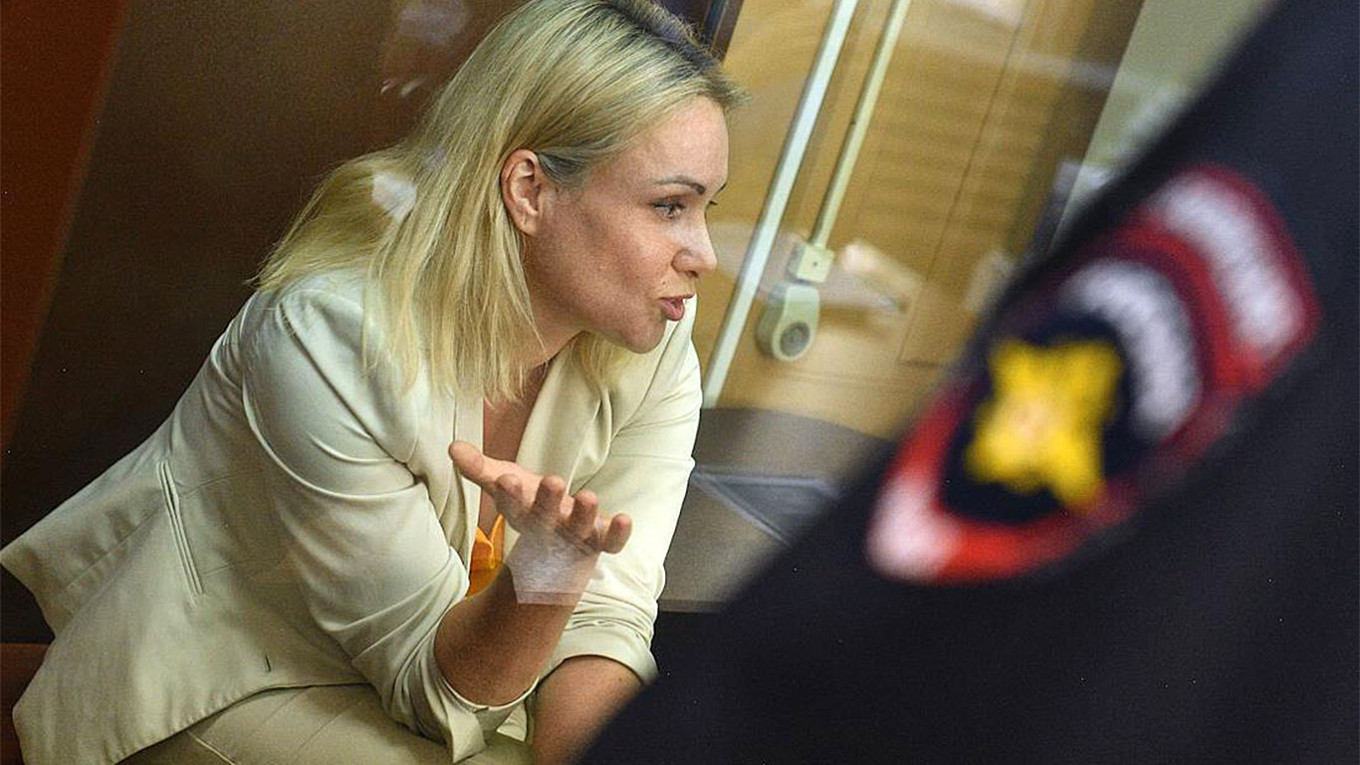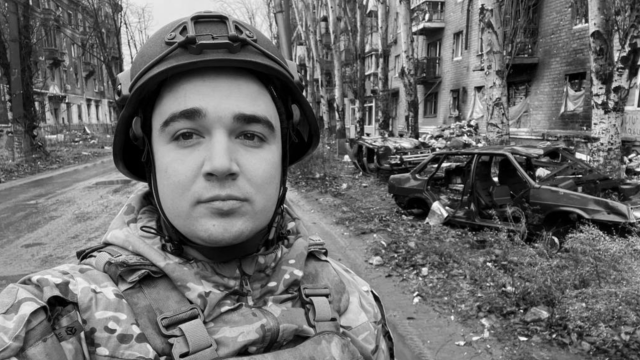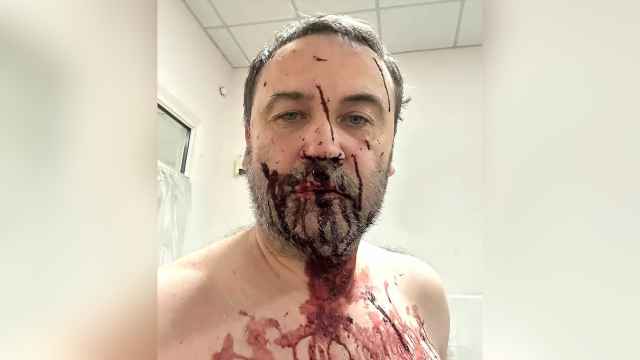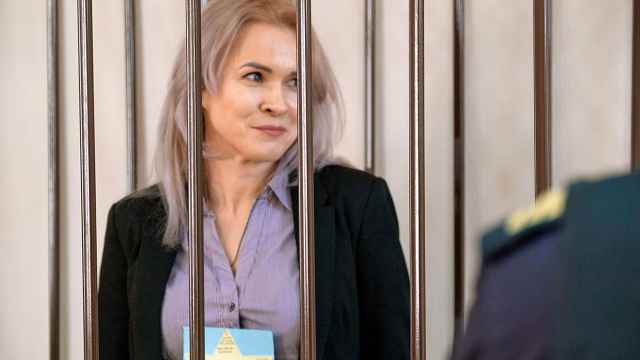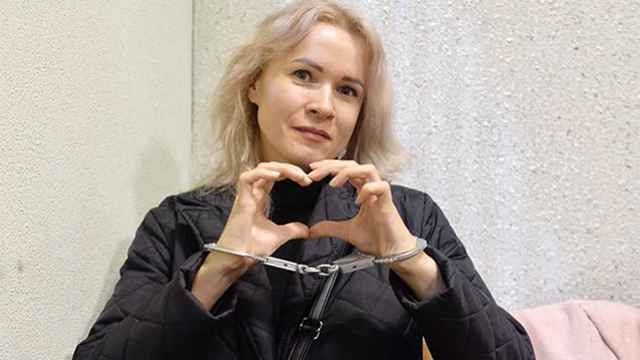A Russian court on Thursday placed former state TV journalist Marina Ovsyannikova, who denounced President Vladimir Putin's attack on Ukraine live on air, under house arrest until October.
On Wednesday, investigators detained Ovsyannikova, 44, and charged her with spreading information about the Russian armed forces deemed false by the government.
The mother of two faces up to 10 years in prison, if convicted.
In March, Ovsyannikova, then an editor at Channel One television, made global headlines when she barged onto the set of its flagship Vremya (Time) evening news, holding a poster reading "No War".
The house arrest is not connected to that particular protest, however.
It is linked to a one-woman protest in mid-July near the Kremlin, when Ovsyannikova held a poster that read "Putin is a murderer, his soldiers are fascists".
Three "blood-soaked" toy dolls were laid on the ground in front of her.
At Moscow's Basmanny district court on Thursday, she was placed in a cage surrounded by several policemen.
She held a sign that read "May the dead children haunt you in your dreams".
Her lawyer Dmitry Zakhvatov wrote on messaging app Telegram that "even" the Soviet Union's most brutal serial killer Andrei Chikatilo was not guarded so closely.
During a closed-door hearing, the court ruled that Ovsyannkova be placed under house arrest until October 9.
"I even don't know what to say. Good that it is not jail? Certainly good," Zakhvatov said.
"But it is still sickening."
Criticism of Putin's decision to send troops to Ukraine on February 24 has been virtually outlawed in Russia.
French President Emmanuel Macron has offered Ovsyannikova, who worked for Russian state TV for 19 years, asylum or other forms of consular protection.
Earlier this year prominent Putin critics Ilya Yashin and Vladimir Kara-Murza were put in pre-trial jail for denouncing Moscow's Ukraine offensive.
The criminal probe against Ovsyannikova was launched after two Moscow courts ordered the journalist to pay fines for discrediting the Russian army on various occasions.
In the months following her TV protest, Ovsyannikova spent time abroad, working for Germany's Die Welt for three months.
In early July, she said she was returning to Russia to settle a dispute over the custody of her two children.
Since her return, Ovsyannikova came out to support opposition politician Yashin in court and published anti-government posts online. She was briefly detained by police near her home in mid-July.
A Message from The Moscow Times:
Dear readers,
We are facing unprecedented challenges. Russia's Prosecutor General's Office has designated The Moscow Times as an "undesirable" organization, criminalizing our work and putting our staff at risk of prosecution. This follows our earlier unjust labeling as a "foreign agent."
These actions are direct attempts to silence independent journalism in Russia. The authorities claim our work "discredits the decisions of the Russian leadership." We see things differently: we strive to provide accurate, unbiased reporting on Russia.
We, the journalists of The Moscow Times, refuse to be silenced. But to continue our work, we need your help.
Your support, no matter how small, makes a world of difference. If you can, please support us monthly starting from just $2. It's quick to set up, and every contribution makes a significant impact.
By supporting The Moscow Times, you're defending open, independent journalism in the face of repression. Thank you for standing with us.
Remind me later.


